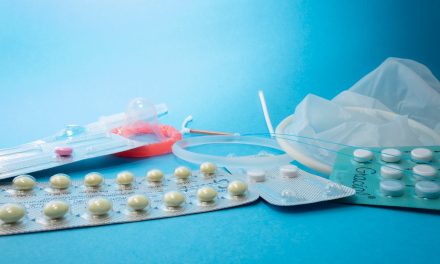Well, A Big Congratulations on the good news! The first trimester is here! *HUGS* *HUGS*
Remember when you were trying hard to conceive and bought all those test kits in positive anticipation. Finally, all those attempts have paid, and now, you need to get ready for embracing parenthood soon. As experienced in most cases, you are already two-four weeks pregnant when you get to know about it. Your house needs babyproofing, and diet charts need to be updated, no more place for alcohol, non-veg, fast foods, etc. Above all, you and your partner need to prepare themselves for the big change.
Among all the hustle-bustle, there are things you need to know. So, let’s dig right into them!
Symptoms During The First Trimester
Firstly, let’s have a look at some common symptoms you will experience during these three months:
- Mood swings
- Morning sickness
- Mild cramps
- Bloating due to increased levels of progesterone (the Pregnancy Hormone)
- Little bleeding due to implantation

Morning Sickness In The First Trimester Of Pregnancy
Whenever you experience these, along with skipping your periods, it’s time to go for the home tests and surprise your family. When confirmed, after 3-4 weeks, you may experience fatigue, your breasts becoming sore, a frequent urge to pee, etc. The next thing you can feel is laziness, which is entirely normal. Further, by the end of 6-7 weeks, nausea, food cravings, and acne become normal, and the baby bump starts showing up.
Also, the hormones have heightened your sense of smell. It’s the time when you may experience a loss of appetite, backaches, loss of focus, weight loss and an increase in belly size along with it. The end of the first trimester may takeaway your morning sickness but give you more emotional stuff to deal with. Alongside, your breasts may start feeling heavy, showing the readiness of preparing the body to feed the baby. Finally, you may also begin to glow. Congratulations, once again, on reaching this milestone, soon-to-be-mommy!
Baby’s Development Episodes During The First Trimester
It’s the first month, and your baby isn’t even technically a baby. It’s just the size of a seed. By the end of the 4th week, the development of various body parts actually starts. It’s also time for the mother to be more careful and filter out her activities that may harm her pregnancy. By the intermission of your first-trimester cycle, your little ones’ heart starts beating and pumping blood. And other external organs are also on their way to development. Brain cells start developing rapidly, teeth, ears, skin are all set to go. Kudos now that your baby is finally a fetus which may bring in some kind of movement along with it. Your baby’s bones and fingernails start developing. All of their vital internal organs are already in place. As you begin to enter your second trimester, your baby has developed its tooth buds, ears and is on its way to developing reflexes.
Checklist
The first step can be fixing your prenatal visit to a gynecologist and getting a proper medical check-up. It’s time to accommodate your exercise schedule by discussing it with your doctor. You can try some prenatal yoga to kick off anxiety, etc. Start including folic acid in your diet schedules by the end of 6-7 weeks. Don’t forget to take enough calcium and vitamin D. By the end of the first trimester, you must go for tests and ultrasounds that may detect any chromosomal abnormalities. Also, it’s time for some maternal shopping now.
Some Extra Tips
- Sleep on your left side to increase the amount of blood and nutrients reaching the placenta and ultimately to the baby.
- Practice Kegel exercises to help keep your body in shape.
- Keep yourself hydrated. If drinking water causes nausea, try some juices, tea or other alternatives that you might be craving.
- Don’t let your mood swings take you. Try going for a walk or do Acupressure.
- Break down your meal structure from three huge ones to healthy and smaller ones to keep it easy on your stomach.
- Avoid carrying heavy stuff, using chemicals, and not hesitate to seek help.
- Also, a word of precaution as the first trimester is particularly the most vulnerable one. So, if you notice any kind of spotting or unusual discharge, consult your gynae at the earliest possible and reduce the risks involved.
- Go for the right supplements and stock up your pantries with healthy foods all around.
- Avoid oily and greasy foods, which may aggravate your sickness problems if consumed.
- You can go for manicures, pedicures, haircuts, body massages, hair spa, etc., anything which you like and think will make you feel good on those days.

![The First Trimester: How To Start This Journey Perfectly [With Extra Tips]](https://immunifyme.com/blog/wp-content/uploads/2022/01/B-1-1.png)




